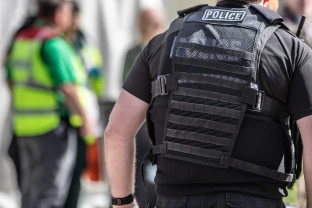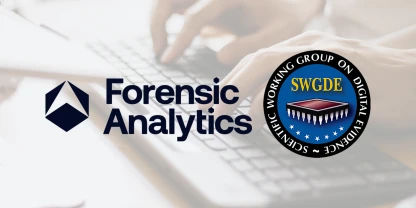CSAS
CSAS sits at the forefront of digital forensics. It empowers investigations and saves law enforcement time and money in the fight against crime.
The powerful investigative platform trusted by police
CSAS enables investigators and analysts to quickly identify key lines of enquiry and fast track actions from complex digital data. It speeds up investigations, improves outcomes and produces information to a robust evidential standard.

CSAS in numbers
During a single Drug Lines operation, CSAS helped London's Metropolitan Police achieve the following:
164
Individuals arrested
124
Individuals charged
$1.4million
Estimated savings to police
$1.3million
Savings at court

Latest updates
With version 3.14 CSAS introduces a range of enhancements including the all-new Concurrent Calls Query and a fully reworked Attributions feature, as well as further UI and performance upgrades across the platform. Click for a full summary of our latest CSAS update.
Maximize your CSAS capabilities with CellView
CellView comes packaged with CSAS and provides you with richer, even more detailed cell site visualizations. Gain real-time, precise views of cell coverage areas and further boost your intelligence capabilities.
From the Knowledge Hub
Case studies, whitepapers, news and blog.

Five Common Mistakes Made in Forensic Cell Site Analysis
This article explores five critical errors frequently made in forensic cell site analysis, a key component in modern criminal investigations. It emphasizes the importance of specialized training, objective analysis, and cautious interpretation of cellular data.

Growing with Purpose: Delivering Real Value to Law Enforcement
As we enter the second half of the financial year, Forensic Analytics continues to grow, with our customers’ needs at the heart of everything we do. We’re proud to be a values-driven organisation, combining deep sector expertise with a passion for making a positive impact.

Building best practice on digital evidence in North America
Digital forensics is a rapidly evolving field with new technologies and methods constantly emerging, which makes it challenging for experts to keep up and maintain consistent, accurate analysis. To address this, knowledge sharing and standardized best-practices are essential to ensure reliable and comparable forensic conclusions. Founder Joe Hoy writes here about the role of the Scientific Working Group on Digital Evidence (SWGDE) in developing consensus, creating best-practice guidelines for handling and interpreting diverse digital evidence types, and working to unify expert approaches.

Forensic Analytics' Commitment to Academia
At Forensic Analytics we have an on-going commitment to academia. This takes shape in many different forms, most prominently in our much-valued partnerships with various universities across the UK and the USA. Additionally, a number of our own staff are completing there own academic courses.
Book a demo
Get an expert walkthrough of our solutions and see how they help in the fight against crime.